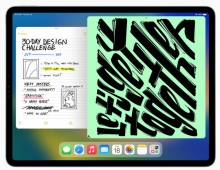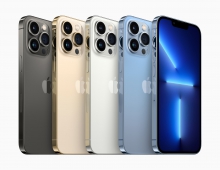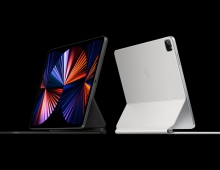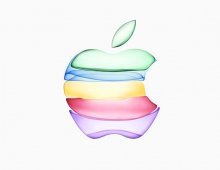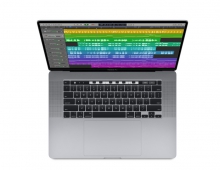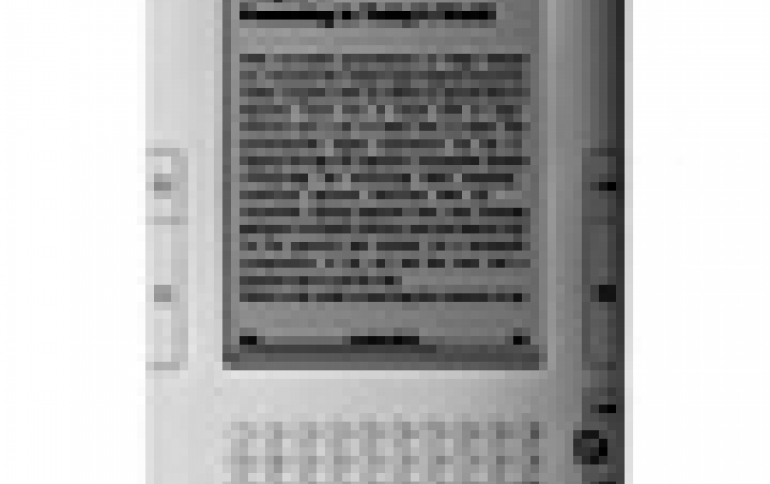
E-books Still Slower Than Reading Print, Study Says
A study of people reading long-form text on tablets finds higher reading speeds than in the past, but they're still slower than reading print.
Jacob Nielsen of the Nielsen Norman Group conducted a readability study of people reading fiction on the two highest-profile tablets: Apple's iPad (first-generation) and Amazon's Kindle 2. The tested included only the default iBook app in order to make it compareble it with the Kindle, which has only one user interface. Also, the test did not include evaluation of the display of non-linear content, such as Web pages or newspapers. It was focused on testing linear, narrative content because it's the primary use case for e-book readers.
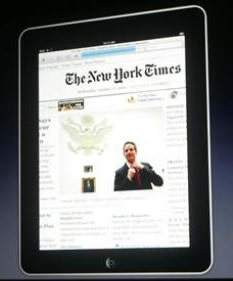 The test ran a within-subjects study, testing each user on all 4 reading conditions - printed book, PC, iPad, and Kindle ? rotating the sequence in which users were exposed to each device.
The test ran a within-subjects study, testing each user on all 4 reading conditions - printed book, PC, iPad, and Kindle ? rotating the sequence in which users were exposed to each device.
On each device, the researchers asked each user to read a simple short story. On average, the stories took 17 minutes and 20 seconds to read, according to Jacob Nielsen. This is obviously less time than people might spend reading a novel or a college textbook, but it's much longer than the abrupt reading that characterizes Web browsing.
After users read each story, Nielsen's team gave them a brief comprehension questionnaire to test their understanding of the story. The test participants got almost all the questions right, regardless of device, the team said.
The test showed that Apple's iPad measured at 6.2% lower reading speed than the printed book, whereas the Kindle measured at 10.7% slower than print. However, the difference between the two devices was not statistically significant because of the data's fairly high variability, the researchers said.
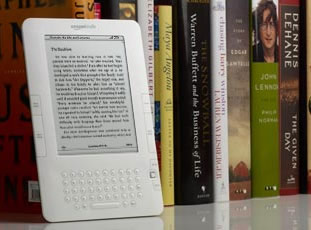 "Thus, the only fair conclusion is that we can't say for sure which device offers the fastest reading speed. In any case, the difference would be so small that it wouldn't be a reason to buy one over the other," Nielsen's team concluded.
"Thus, the only fair conclusion is that we can't say for sure which device offers the fastest reading speed. In any case, the difference would be so small that it wouldn't be a reason to buy one over the other," Nielsen's team concluded.
It seems that tablets still haven't beaten the printed book.
After using each device, the team also asked users to rate their satisfaction on a 1?7 scale, with 7 being the best score.
iPad, Kindle, and the printed book all scored fairly high at 5.8, 5.7, and 5.6, respectively. The PC, however, scored an abysmal 3.6.
Other free-form comments made by users included they disliked that the iPad was so heavy and that the Kindle featured less-crisp gray-on-gray letters. People also disliked the lack of true pagination and preferred the way the iPad (actually, the iBook app) indicated the amount of text left in a chapter.
Users also felt that reading the printed book was more relaxing than using electronic devices. And they felt uncomfortable with the PC because it reminded them of work.
 The test ran a within-subjects study, testing each user on all 4 reading conditions - printed book, PC, iPad, and Kindle ? rotating the sequence in which users were exposed to each device.
The test ran a within-subjects study, testing each user on all 4 reading conditions - printed book, PC, iPad, and Kindle ? rotating the sequence in which users were exposed to each device.
On each device, the researchers asked each user to read a simple short story. On average, the stories took 17 minutes and 20 seconds to read, according to Jacob Nielsen. This is obviously less time than people might spend reading a novel or a college textbook, but it's much longer than the abrupt reading that characterizes Web browsing.
After users read each story, Nielsen's team gave them a brief comprehension questionnaire to test their understanding of the story. The test participants got almost all the questions right, regardless of device, the team said.
The test showed that Apple's iPad measured at 6.2% lower reading speed than the printed book, whereas the Kindle measured at 10.7% slower than print. However, the difference between the two devices was not statistically significant because of the data's fairly high variability, the researchers said.
 "Thus, the only fair conclusion is that we can't say for sure which device offers the fastest reading speed. In any case, the difference would be so small that it wouldn't be a reason to buy one over the other," Nielsen's team concluded.
"Thus, the only fair conclusion is that we can't say for sure which device offers the fastest reading speed. In any case, the difference would be so small that it wouldn't be a reason to buy one over the other," Nielsen's team concluded.
It seems that tablets still haven't beaten the printed book.
After using each device, the team also asked users to rate their satisfaction on a 1?7 scale, with 7 being the best score.
iPad, Kindle, and the printed book all scored fairly high at 5.8, 5.7, and 5.6, respectively. The PC, however, scored an abysmal 3.6.
Other free-form comments made by users included they disliked that the iPad was so heavy and that the Kindle featured less-crisp gray-on-gray letters. People also disliked the lack of true pagination and preferred the way the iPad (actually, the iBook app) indicated the amount of text left in a chapter.
Users also felt that reading the printed book was more relaxing than using electronic devices. And they felt uncomfortable with the PC because it reminded them of work.

